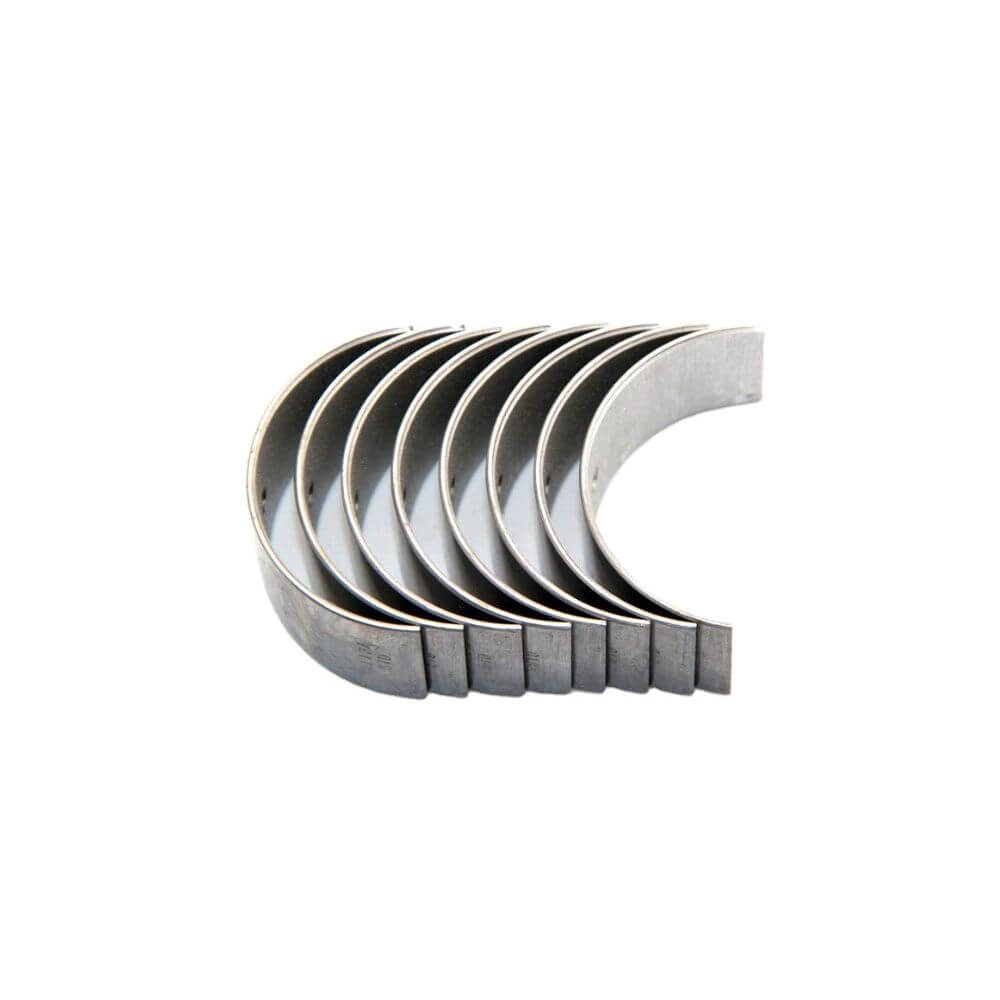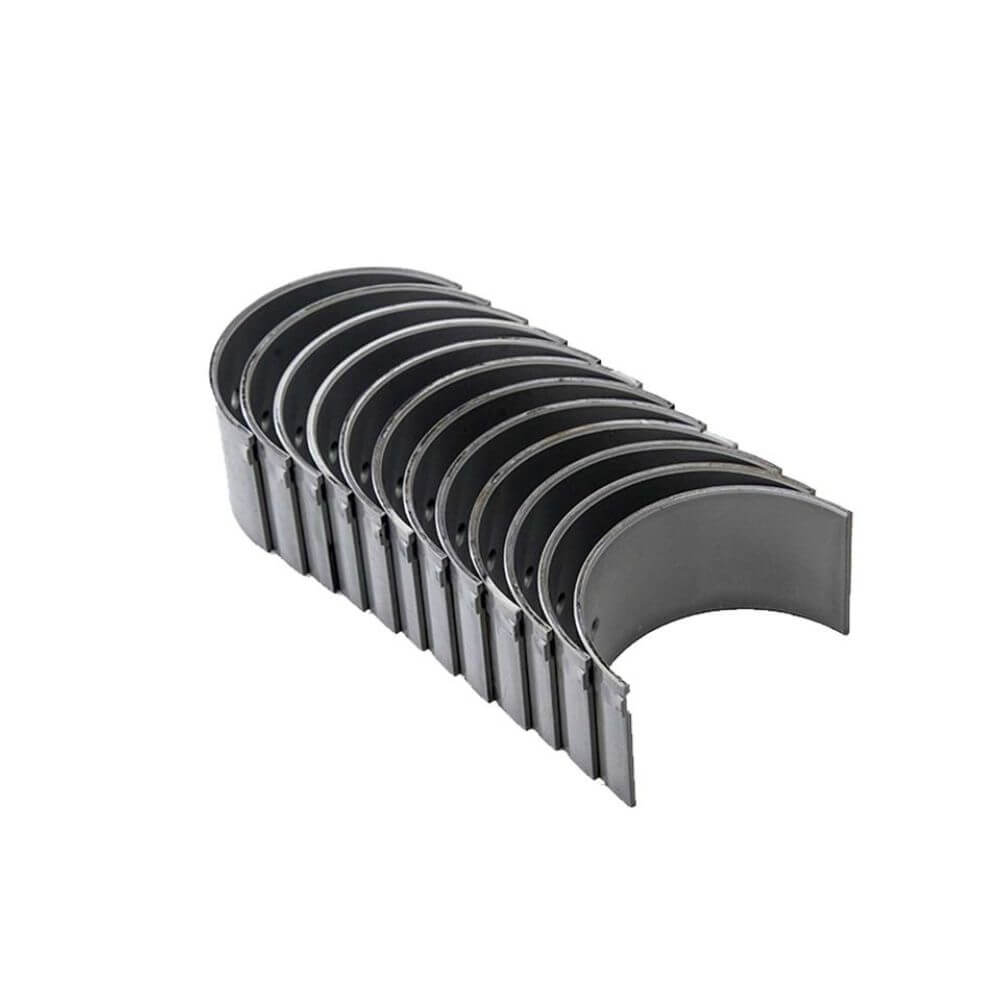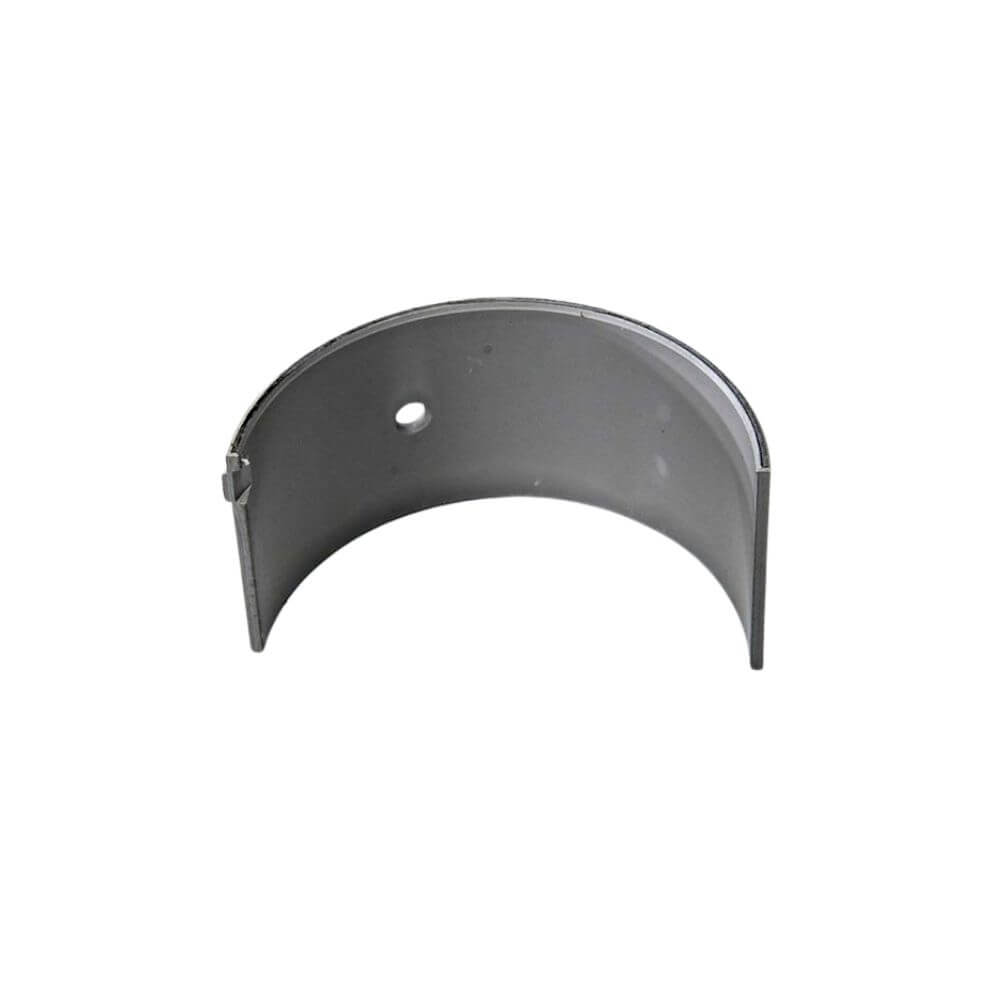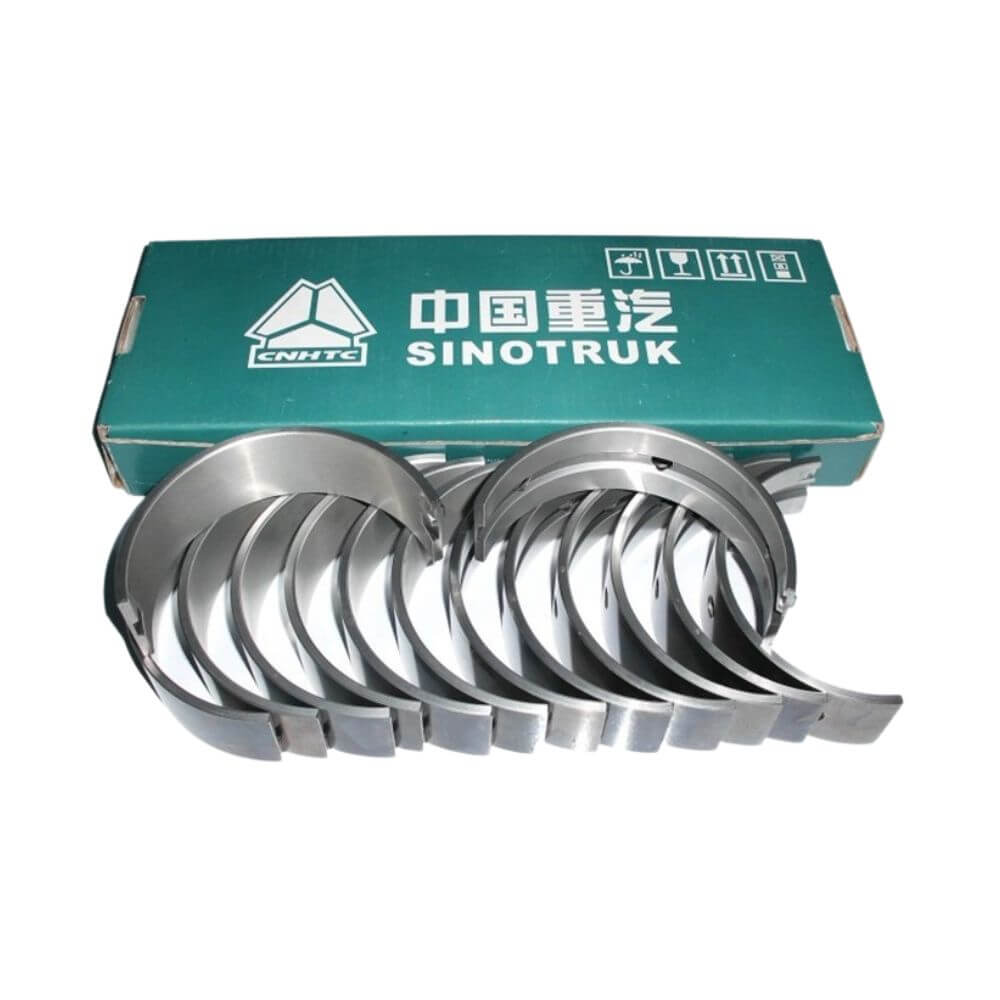A truck engine connecting rod bearing is a part that holds the crankshaft and connects rods in place when they rotate. The upper part of this truck part gets a pinhole that allows the crankshaft to be lubricated, allowing the connecting rod bearing to spin correctly without producing excessive heat. Both the piston and connecting rod are assembled in the engine with a connecting rod bearing. Adapting connecting rod bearings to a heavy-duty truck engine is complex and important when the truck engine is modified to ensure its normal running. Connecting rod bearings can take a good effect in loading the crankshaft and connecting rods while it can fit the engine as per different specifications of oil or diesel.
If the connecting rod bearings are worn out, a bigger gap will come about between the rod bearings and connecting rods. In this circumstance, the spinning crankshaft will break down unexpectedly while the noise of rods knocking on the engine will be heard clearly. Generally speaking, a truck engine going with a bad connecting rod bearing will trigger the glimmering of engine oil light in the heavy-duty truck’s dashboard. It is extremely possible for the very light not to go out because of the terrible problems with the connecting rod bearing.
You can inspect the connecting rod bearing to check whether it is damaged without the demands of removing truck engine parts. The steps of inspecting connecting rod bearings can be referred to as follows:
- Firstly, uplift the front wheels and check under the truck engine when setting the parking brake.
- Secondly, just remove the drainage bolt apart from the oil pan to drain off the oil. What’s more, do remember to get a catch pan underneath to avoid the occurrence of oil spilling.
- Thirdly, once you find the oil contains metallic shavings, the connecting rod bearing failures may happen at any time.
- Finally, remove the oil pan, and inspect the damage to connecting rod bearings.



